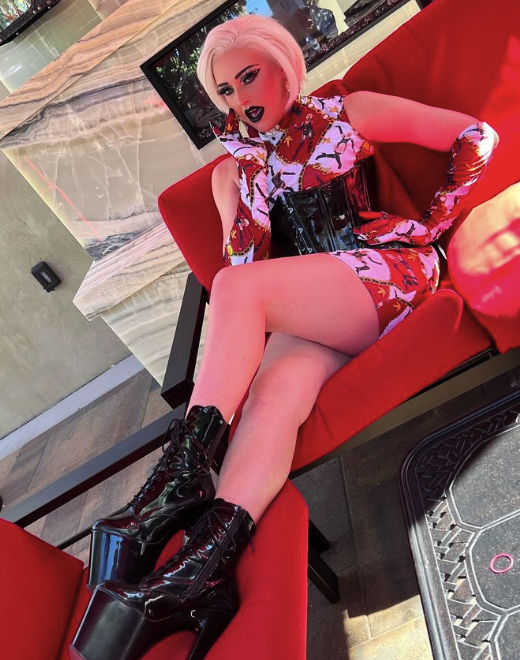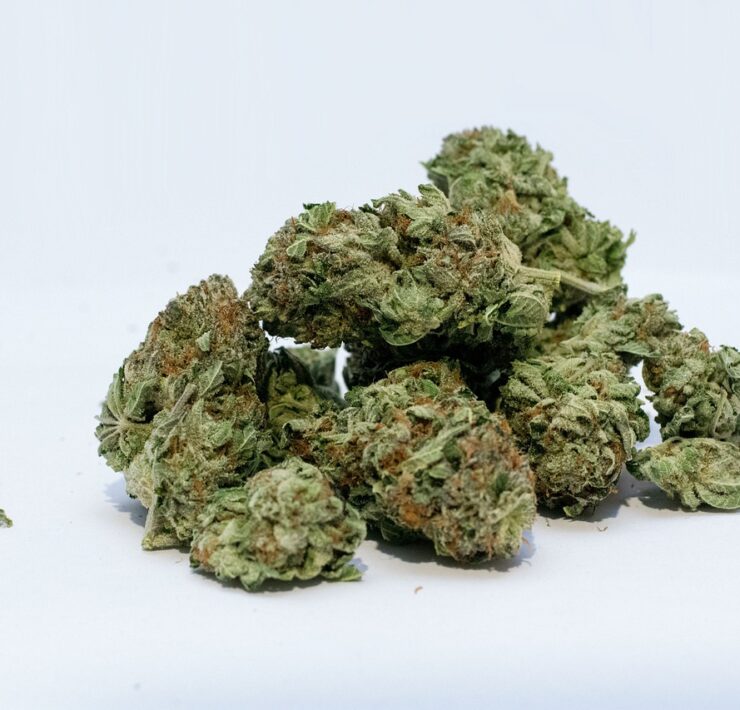Andrew DeAngelo: Out of the Shadows and Into the Light

Andrew DeAngelo is a cannabis expert, not just because he’s smoked a lot of weed (although he has) but because his entire life and career have revolved around the plant. Andrew has enjoyed what he calls a “cannabis career” which not only involves founding and operating a dispensary, but also engaging in political advocacy work, writing about weed for publications like Playboy, and providing consulting services for those in the cannabis industry.
Using his own terminology, he appears as a suit: a clean-cut, handsome, middle-aged man often wearing business attire; however, at heart, he is a stoner. His admiration for cannabis comes through when he talks about it, as he points out all the medicinal uses it has while also savoring the delight it can give those who use it recreationally. His image contradicts every negative stereotype that has existed in society about those who smoke cannabis. Successful, eloquent, and passionate, his life story serves to counter the cannabis alarmists of the past.
“My mission in life has been about taking cannabis out of the shadows and into the light,” DeAngelo tells me. “Rebranding cannabis as a force of good, not as a force of bad.”
His ties to cannabis go back to his childhood. His brother Steve DeAngelo, 10 years his senior, was selling cannabis while Andrew was still a child. At 9 years old, he remembers visiting his brother while he was in jail for a cannabis offense. When he was in his teens, he discovered he had the same affinity for the plant, appreciating its healing effects and the recreational enhancements it provides. DeAngelo was quickly a supporter of legalization.
“I always felt like the plant does most of the work for us, everybody has an endocannabinoid system, and all of us that have experienced cannabis, most people, get benefits from it,” DeAngelo says.
When it was time for him to go to college, he knew he wanted to leave his hometown of Washington, D.C. for the sun-kissed, blue skies of California. However, it wasn’t until the year 1990, when he moved to San Francisco, that he realized the powerful future cannabis could have.
Accepted into an MFA acting program in 1990, his brother arranged for him to crash at weed activist Dennis Peron’s house for a couple of weeks while he looked for a place in San Francisco. Exposure to Peron changed the way DeAngelo looked at the fight for legalization.
Related: OFM Cannabis Queer & 420 Friendly in 2021
In 1990, Peron was already a fixture in both the LGBTQ community and the cannabis community in San Francisco. A veteran of Vietnam, Peron, forever changed by the horrors of war, moved to San Francisco to lead a life of advocacy.
“I saw him foster community, and I saw him heal people. I saw him be a leader.” DeAngelo says.
Walking into Peron’s house was a culture shock. Peron housed around a dozen gay men. Many were runaways, kicked out by their disapproving families. They grew weed, both to share with each other and to sell.
“You couldn’t do anything outrageous or violent, but it was a pretty loose scene. But, you had to be there for dinner. I grew up that way in my family, so when I saw that, and I saw this community around him, I was very inspired,” DeAngelo says.
The AIDS epidemic was still raging, and cannabis was a popular medicine that helped ease the pain for many AIDS patients. The fight for gay rights and the fight for legalization were linked; it was those in the LGBTQ community who organized and advocated to legalize this medicine for their brothers and sisters who were sick. The police during that time targeted LGBTQ communities, and those caught with cannabis faced serious time in prison.
More than just an anchor for the community, Peron was undoubtedly a leader. He showed DeAngelo that, through effective organizing and storytelling, change could be enacted.
“So, Dennis started putting very sick people in front of the media, and in front of cameras, and he started trying to pass laws and tell their stories. He didn’t tell his stories; he told their stories. And that was a stroke of genius. Something I’ve learned a lot from because it can’t be about us; it has to be about the patient; it has to be about the customer rather than the plant itself. Once we stopped making righteous arguments, and we started healing people, we started to make a lot more progress politically at the time, once we started moving people from the heart,” DeAngelo says.
DeAngelo joined in the activism, continuing even after he moved out of Peron’s. In 1991, Peron and DeAngelo helped organize support for Proposition P, a measure that would make the medical use of cannabis legal within the city limits. The proposition passed with 79 percent of the vote.
In 1994, Peron co-founded the first public, cannabis dispensary in the United States, the San Francisco Buyers Club. In August of 1996, his medicinal cannabis store was raided by police. Sixty pounds of pot and $750,000 were seized; Peron was arrested at his home, and the dispensary was shut down. This was while he was hard at work campaigning for Proposition 215, a landmark proposition that would legalize medical cannabis in California and was co-authored by Peron himself. Peron did not let the raid affect his advocacy, giving interviews and appearing nightly on television news during the weeks leading up to the referendum.
“Dennis was a brave, brave warrior, a peaceful warrior, hunted by the police, shot by the police, imprisoned by the police, more than once, and still kept doing this work despite all that. A real hero,” DeAngelo says.
The historic proposition passed while Peron was indicted on felony drug charges, and his uncertain future didn’t dampen his jubilation at the news.
“I learned that I could have a cannabis career through Dennis, and it would be possible to be legal; it would be possible to make our dreams come true. Dennis had the bravery and the vision and the chutzpah to get it done.”
DeAngelo found some success as an actor, both on stage and on screen, but cannabis is what he kept returning to. After the lessons learned from Peron, he decided to lead a similar life, one of organization, advocacy, and compassion. He moved back to D.C. in 1992 and worked on Initiative 59, a measure that would legalize medicinal cannabis within D.C., which was passed in 1998.
“We have to tell stories of kids with epilepsy in their community, senior citizens, people like that, that are amongst them and need this medicine. That’s how we will eventually lift all the local bans. And we’ll change minds. One mind and one heart at a time.”
Since his graduation from college, DeAngelo’s ongoing drive led him to play a part in many cannabis-related projects. In 2006, he co-founded Harborside, a dispensary in Oakland which, in 2012, was targeted by federal drug enforcement who tried to shut it down. Instead of giving into the pressure to close, they fought the charges. The feds dropped the case in 2016, setting precedents that would protect similar dispensaries from federal intervention.
He has also co-founded The Last Prisoner Project, a nonprofit that works to release those serving time for cannabis possession.
“Our mission is freeing all cannabis prisoners on Earth, expunging their records, and reintegrating them into society,” DeAngelo says.
DeAngelo is one of the first to be able to make an entire career around cannabis. He was there through it all—that early struggle to legalize medicinal cannabis in San Francisco to entire states legalizing the plant for recreational use. He has high hopes for the future of the industry, dreaming of a future that is beneficial to all, in which small cannabis businesses can thrive, medical cannabis is available to everyone, and people don’t go to prison for possessing weed.
Talking about Peron, whom he had contact with until he passed in 2018, DeAngelo has a clear reverence for the true trailblazer that has allowed him to pursue the career he has now.
“I could talk about Dennis for a long time; we are all standing on the shoulders of Dennis.”










